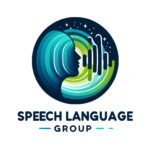Date: lundi 21 octobre 2024 à 14h00 lieu: salle des thèses sur le campus Hannah Arendt. Le lien de visio-conférence est le suivant: https://bbb.univ-avignon.fr/rooms/vtj-xje-xex-gyw/join . Le jury sera composé de : Dr Aurélie Clodic, LAAS-CNRS, RapporteurePr Julien Pinquier, Université de Toulouse, IRIT, RapporteurPr Laurence Devillers, Sorbonne Université, LISN-CNRS, ExaminatricePr Olivier Alata, Université Jean Monnet, Laboratoire Hubert Curien, ExaminateurPr Fabrice Lefèvre, Avignon Université, LIA, Directeur de thèseDr Bassam Jabaian, Avignon Université, LIA, Co-encadrant Titre : L’interaction humain-robot multimodale proactive dans un cadre hospitalier Dans cette thèse, nous nous concentrons sur la création d’un système multimodal proactif pour le robot social Pepper, destiné à une salle d’attente d’hôpital. Pour ce faire, nous avons développé une architecture cognitive d’interaction humain-robot, fondée sur une boucle continue de perceptions, de représentation et de décision. Le flux de perceptions se divise en deux étapes : d’abord, la récupération des données des capteurs du robot, puis leur enrichissement grâce à des modules de raffinage. Un module de raffinage de diarisation du locuteur, basé sur une modélisation bayésienne de la fusion des perceptions audio et visuelles par coïncidence spatiale, a été intégré. Pour permettre une action proactive, nous avons conçu un modèle analysant la disponibilité des utilisateurs à une Plus d'infos



